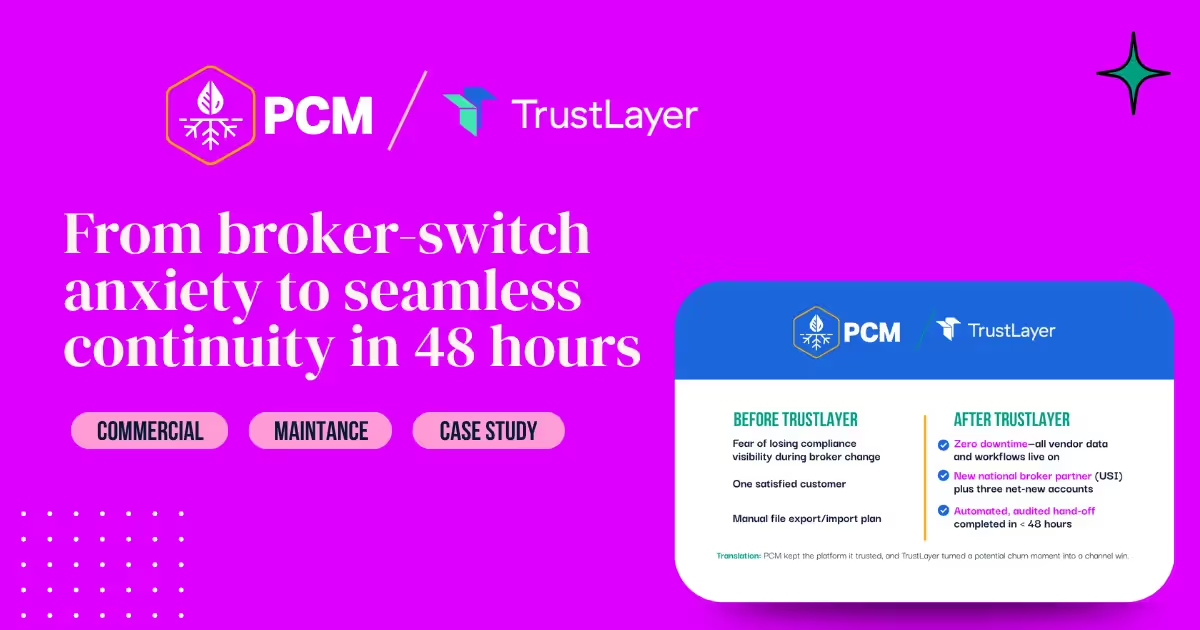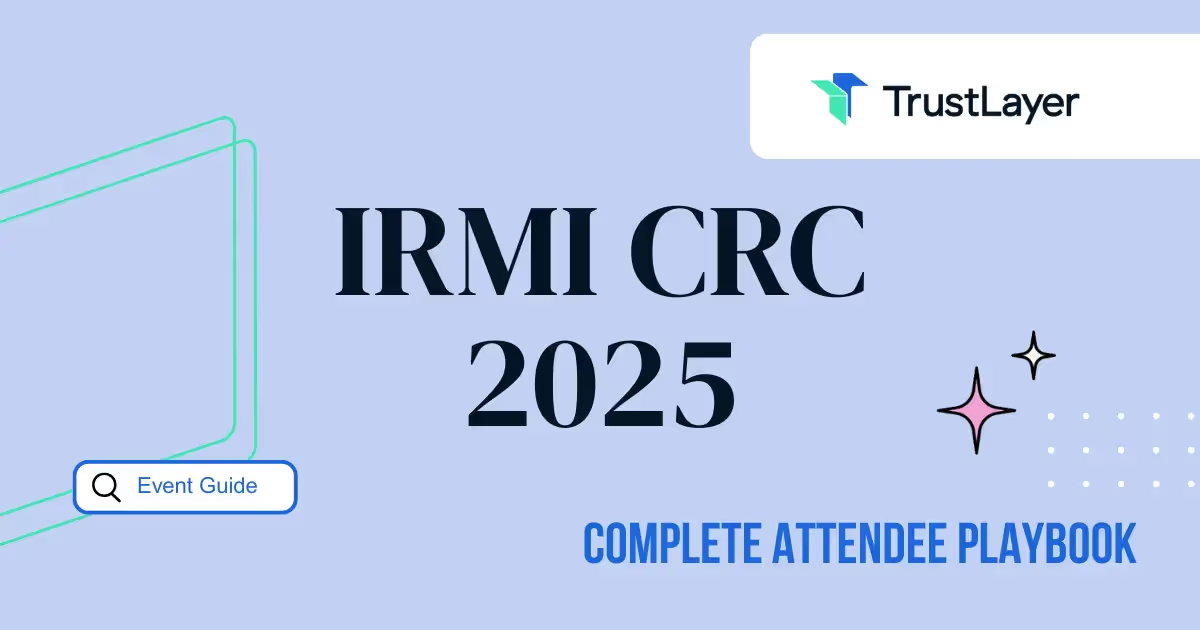Streamline Franchise Insurance Compliance with Automated Tracking
Running a franchise can be a profitable and rewarding business venture, but it also comes with a plethora of responsibilities, including insurance compliance. Insurance compliance is vital for protecting your franchise from unexpected risks and potential legal trouble. However, manually tracking and managing insurance compliance can be a daunting task, consuming valuable time and resources. This is where automated tracking systems come into play, revolutionizing the way franchises approach insurance compliance.
Understanding the Importance of Insurance Compliance in Franchising
Insurance plays a critical role in the operations of any franchise. It safeguards your business against unforeseen events, such as property damage, bodily injury claims, or even lawsuits. Without proper insurance coverage, a single incident can lead to substantial financial loss or even bankruptcy.
Franchise operations involve a complex web of relationships between the franchisor, franchisee, and various stakeholders. Insurance compliance ensures that all parties involved are protected and that the franchise operates within the agreed-upon standards and regulations.
The Role of Insurance in Franchise Operations
Insurance acts as a shield, providing peace of mind to franchisees, franchisors, and customers alike. It protects franchisees from legal liabilities that may arise from accidents or incidents within their business premises. It also safeguards franchisors from potential claims resulting from the actions of their franchisees.
Furthermore, insurance is often a prerequisite for entering into essential contracts or agreements. Lenders, landlords, and suppliers typically require proof of insurance before engaging in business relationships with a franchise. Without a robust insurance program in place, franchisees may find it challenging to secure financing, lease properties, or receive necessary support from suppliers.
Key Compliance Issues in Franchise Insurance
Franchise insurance compliance involves navigating a complex landscape of regulations and requirements. Common compliance issues include verifying proper coverage, maintaining adequate policy limits, ensuring timely premium payments, and regularly updating insurance records.
In addition, franchises must address challenges related to certifying and tracking certificates of insurance (COI). COIs are documents that provide evidence of insurance coverage for third parties, such as landlords or clients. It is crucial to consistently obtain, validate, and manage COIs to ensure compliance with various contractual obligations.
One specific compliance issue that franchise owners often face is the need to understand and comply with state-specific insurance regulations. Each state may have its own set of insurance requirements and regulations that franchisees must adhere to. This can include specific coverage limits, types of insurance required, and even licensing requirements for certain industries.
Another important aspect of insurance compliance in franchising is the need for ongoing risk assessment and management. Franchise businesses operate in a dynamic environment, and new risks can emerge over time. It is essential for franchise owners to regularly review their insurance coverage and assess whether it adequately addresses the evolving risks they face.
Additionally, franchise owners must ensure that their employees are properly trained in insurance compliance. This includes educating them on the importance of maintaining accurate records, understanding the terms and conditions of their insurance policies, and knowing how to handle insurance claims effectively.
Overall, insurance compliance is a crucial aspect of running a successful franchise. It not only protects the franchisee and franchisor from financial loss but also helps maintain the integrity of the franchise system as a whole. By understanding and adhering to insurance regulations and requirements, franchise owners can ensure the long-term success and sustainability of their businesses.
The Need for Automation in Tracking Compliance
While the importance of insurance compliance cannot be understated, managing it manually can be a time-consuming and error-prone process. Handling stacks of paperwork, tracking policy expiration dates, and validating Certificates of Insurance (COIs) manually is not only inefficient but poses a significant risk of oversight and non-compliance.
Challenges in Manual Compliance Tracking
Manual compliance tracking is prone to human error and can lead to serious consequences. Misplaced documents, overlooked renewal dates, or COIs that slip through the cracks can result in gaps in coverage or missed contractual obligations. Moreover, the manual handling of compliance-related tasks can divert valuable time and resources from other critical aspects of franchise management.
Imagine a scenario where a franchise owner is responsible for managing compliance for multiple locations. Without an automated tracking system, they would have to manually sift through piles of paperwork, searching for specific documents and expiration dates. This tedious process not only increases the likelihood of errors but also consumes precious hours that could be better spent on growing the business.
Benefits of Automated Compliance Tracking
Automated tracking systems provide a smarter, more efficient solution to the challenges faced in manual compliance tracking. By leveraging technology, franchises can streamline their insurance compliance processes, saving time, reducing errors, and ensuring continuous adherence to regulations.
With automated tracking, important policy information and COI data can be easily stored and organized in a centralized digital platform. These systems can send automated reminders for policy renewals, track key dates, and provide real-time visibility into compliance status. By eliminating manual data entry and enabling instant access to crucial information, automated tracking systems empower franchise owners to make better-informed decisions.
Furthermore, automated compliance tracking systems often come equipped with advanced features such as document management and reporting capabilities. Franchise owners can effortlessly generate comprehensive reports on compliance status, identify areas of improvement, and demonstrate compliance to stakeholders. This level of transparency not only instills confidence in franchise operations but also helps in building strong relationships with insurance providers and regulatory bodies.
In conclusion, automation is the key to efficient and accurate compliance tracking. By adopting automated tracking systems, franchise owners can free up valuable time, minimize the risk of errors, and ensure that their businesses remain compliant with insurance regulations. Embracing technology not only enhances operational efficiency but also contributes to the long-term success and growth of franchises.
How Automation Streamlines Insurance Compliance
Automated tracking systems serve as a game-changer for franchise owners looking to streamline their insurance compliance processes. Let's dive into how these systems work and the benefits they bring.
The Mechanism of Automated Tracking Systems
An automated tracking system replaces traditional manual processes with intelligent technology. These systems capture and digitize insurance documents, including policy details and Certificates of Insurance (COIs), providing franchise owners with a comprehensive overview of their insurance compliance status.
But how exactly do these systems work? Well, they employ advanced machine learning algorithms and artificial intelligence to analyze and interpret the information contained in insurance documents. This allows the system to automatically extract key data points, such as policy expiration dates and coverage limits, and store them in a centralized database.
Furthermore, automated tracking systems can validate and verify COIs, flagging any discrepancies or potential issues. By cross-referencing the information provided in the COI with the policy details, these systems ensure that the franchise is adequately covered and compliant with insurance requirements.
Additionally, these systems can integrate with insurance carriers, enabling real-time updates of policy information. This means that franchise owners can have peace of mind knowing that their insurance data is always up-to-date, accurate, and readily accessible.
Efficiency and Accuracy in Compliance Reporting
With automated tracking, compliance reporting becomes a breeze. Franchise owners can generate detailed reports on their insurance compliance status, policy expirations, and COI validity with just a few clicks. This instant access to accurate data equips franchises with the information they need to confidently address compliance concerns and make informed decisions.
Moreover, automation reduces the likelihood of errors and oversights commonly associated with manual compliance tracking. By eliminating the need for manual data entry and analysis, these systems minimize the risk of human error and ensure that all compliance-related information is consistently and accurately recorded.
But the benefits of automation extend beyond efficiency and accuracy. By streamlining insurance compliance processes, automated tracking systems enhance transparency and trust between franchisees, franchisors, and third-party stakeholders. Franchise owners can easily demonstrate their commitment to compliance, providing reassurance to their franchisors and building stronger relationships with insurance carriers and other business partners.
In conclusion, automated tracking systems revolutionize insurance compliance by leveraging intelligent technology to streamline processes, improve accuracy, and enhance transparency. By embracing automation, franchise owners can focus on growing their business while having the peace of mind that their insurance compliance is in good hands.
Implementing Automated Tracking in Your Franchise
Now that the benefits of automation are clear, it's essential to consider how to implement automated tracking systems within your franchise.
Automated tracking systems have revolutionized the way businesses manage their insurance compliance efforts. By streamlining processes and eliminating manual tasks, these systems not only save time but also ensure accuracy and reduce the risk of non-compliance. However, choosing the right automated tracking system is crucial to the success of your insurance compliance efforts.
Choosing the Right Automated Tracking System
Selecting the right automated tracking system can be a daunting task, given the numerous options available in the market. To make an informed decision, look for a solution that offers user-friendly interfaces, seamless integration with insurance carriers, and robust reporting capabilities.
One such solution that has emerged as a preferred choice for many franchises is TrustLayer. With its intuitive interface and powerful features, TrustLayer simplifies compliance tracking and enables frictionless collaboration between franchisees and stakeholders. Its seamless integration with insurance carriers ensures real-time updates, eliminating the need for manual data entry and reducing the risk of errors.
Steps to Transition to Automated Compliance Tracking
Implementing automated compliance tracking involves a few essential steps to ensure a smooth transition. The first step is to digitize your existing insurance documents and centralize them within the automated tracking system. This process not only saves physical storage space but also allows for easy access to policy details whenever needed.
Once the documents are digitized, it is crucial to ensure that all policy details are accurately entered into the system. This includes verifying and validating Certificates of Insurance (COIs) to ensure that they meet the required compliance standards.
Next, effective communication is key to the successful implementation of automated tracking. It is essential to inform all stakeholders, including franchisees, insurance carriers, landlords, and other third parties, about the transition to automated tracking. Clearly explain the benefits of automation and any changes in the process for obtaining and managing insurance documents. This will help everyone understand the importance of the transition and ensure their cooperation.
Lastly, conducting regular training sessions is vital to ensure that franchisees and staff are comfortable using the automated tracking system. These sessions should cover the system's features and functionalities, as well as provide guidance on how to generate compliance reports and address any issues or concerns promptly.
By following these steps and implementing an automated tracking system like TrustLayer, your franchise can streamline its insurance compliance efforts, reduce administrative burden, and ensure a higher level of accuracy and efficiency.
The Future of Insurance Compliance in Franchising
As technology continues to advance at an unprecedented pace, the future of insurance compliance in franchising holds exciting possibilities. With the emergence of new technologies, such as artificial intelligence and blockchain, franchises can revolutionize the way they approach compliance tracking, leading to enhanced security, transparency, and efficiency in managing insurance compliance.
Technological Innovations in Compliance Tracking
One of the most promising advancements in compliance tracking is the use of artificial intelligence (AI) algorithms. These intelligent algorithms have the ability to automatically validate Certificates of Insurance (COIs) and cross-reference them with policy details, minimizing the risk of fraudulent documents. By leveraging AI, franchises can significantly reduce the time and effort spent on manual verification processes, allowing them to focus on more strategic initiatives.
Another technology that is set to revolutionize insurance compliance is blockchain. By leveraging the decentralized and immutable nature of blockchain technology, franchises can create an unalterable and transparent ledger of insurance transactions. This ensures trust and transparency between franchisees, franchisors, and insurers, eliminating the need for intermediaries and reducing the risk of fraudulent activities.
Preparing Your Franchise for Future Compliance Needs
To stay ahead of the curve, it is essential to future-proof your franchise's compliance program. Embracing technology and exploring solutions that offer scalable and adaptable features will be crucial. Franchises should be proactive in understanding upcoming regulatory changes and industry trends, equipping themselves to meet evolving compliance requirements head-on.
Additionally, fostering a culture of compliance within your franchise is paramount. Educating franchisees and employees about the importance of insurance compliance and providing them with the necessary tools and resources to stay compliant will be key to success. By investing in training programs and creating a compliance-focused environment, franchises can ensure that compliance becomes ingrained in their operations.
In conclusion, insurance compliance is an integral part of running a franchise. By implementing automated tracking systems, franchise owners can streamline their compliance processes, reducing errors, saving time, and ensuring continuous adherence to regulations. The use of AI algorithms and blockchain technology offers immense benefits, from improved efficiency and accuracy to enhanced transparency and collaboration. As technology advances, the future of insurance compliance holds exciting possibilities, and franchises that embrace automation and innovation will be well-equipped to navigate the evolving landscape.
Ready to elevate your franchise's insurance compliance and embrace the future of risk management? TrustLayer is here to revolutionize the way you handle certificates of insurance (COIs) and compliance documents. Our industry-leading solution, designed with modern risk managers in mind, automates the tedious tasks of document collection, storage, and verification, freeing you from the administrative burden and saving your business time and money. Join the hundreds of thousands of companies that have already streamlined their processes with TrustLayer. Don't let outdated methods hold you back. Set up a time to talk with our team and discover how we can help you build a culture of compliance that's ready for the challenges of tomorrow.
















